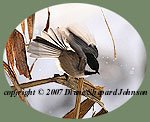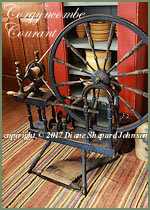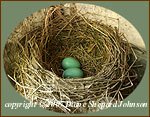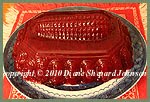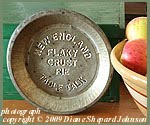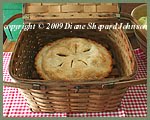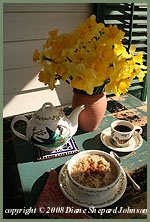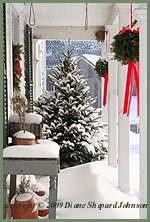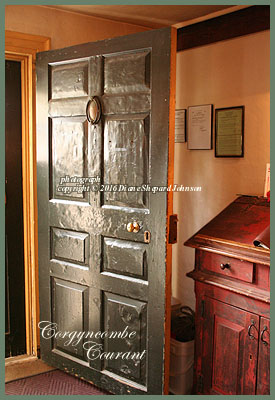"And, half effaced by rain and shine,
The Red Horse prances on the sign."
~ "Tales of a Wayside Inn" by Henry Wadsworth Longfellow
Henry David Thoreau noted in his journal: "Left our horse at the Howe tavern. The oldest date on the sign is "D. H. 1716."
"As ancient is this hostelry
As any in the land may be,
Built in the old Colonial day,
When men lived in a grander way"
As any in the land may be,
Built in the old Colonial day,
When men lived in a grander way"
~ "Tales of a Wayside Inn" by Henry Wadsworth Longfellow
My 7th great grandparents' (David and Hepzibah Howe) house, the Howe
Tavern in Massachusetts. The Howe Tavern is also known as the Wayside
Inn, made famous in Longfellow's poem.
David and Hepzibah Howe's daughter Hepzibah was my 6th great grandmother.
In "Tales of a Wayside Inn" by Longfellow, he speaks of Hepzibah's brother Lieut. Col. Ezekiel Howe and the sword he used "In the rebellious days of yore, Down there at Concord in the fight."
David and Hepzibah Howe's daughter Hepzibah was my 6th great grandmother.
In "Tales of a Wayside Inn" by Longfellow, he speaks of Hepzibah's brother Lieut. Col. Ezekiel Howe and the sword he used "In the rebellious days of yore, Down there at Concord in the fight."
In "Wings from the Wind, An Anthology of Poems Selected and Illustrated by Tasha Tudor", Tasha illustrated some farmer soldiers at the bridge for the poem "The Concord Hymn" written by Ralph Waldo Emerson. There is also an illustration of an old gravestone.
"But first the Landlord will I trace;
Grave in his aspect and attire;
A man of ancient pedigree,
A Justice of the Peace was he,
Known in all Sudbury as "The Squire."
And in the parlor, full in view,
His coat-of-arms, well framed and glazed,
Upon the wall in colors blazed;
He beareth gules upon his shield,
A chevron argent in the field,
With three wolf's heads, and for the crest
A Wyvern part-per-pale addressed
Upon a helmet barred; below
The scroll reads, "By the name of Howe."
And over this, no longer bright,
Though glimmering with a latent light,
Was hung the sword his grandsire bore,
In the rebellious days of yore.
Down there at Concord in the fight."
Grave in his aspect and attire;
A man of ancient pedigree,
A Justice of the Peace was he,
Known in all Sudbury as "The Squire."
And in the parlor, full in view,
His coat-of-arms, well framed and glazed,
Upon the wall in colors blazed;
He beareth gules upon his shield,
A chevron argent in the field,
With three wolf's heads, and for the crest
A Wyvern part-per-pale addressed
Upon a helmet barred; below
The scroll reads, "By the name of Howe."
And over this, no longer bright,
Though glimmering with a latent light,
Was hung the sword his grandsire bore,
In the rebellious days of yore.
Down there at Concord in the fight."
~ "Tales of a Wayside Inn" by Henry Wadsworth Longfellow
"The fire-light, shedding over all
The splendor of its ruddy glow,
Filled the whole parlor large and low;
It gleamed on wainscot and on wall,
The splendor of its ruddy glow,
Filled the whole parlor large and low;
It gleamed on wainscot and on wall,
It bronzed the rafters overhead,
On the old spinet's ivory keys
It played inaudible melodies,
It crowned the sombre clock with flame,
The hands, the hours, the maker's name,
And painted with a livelier red
The Landlord's coat-of-arms again;
And, flashing on the window-pane,
Emblazoned with its light and shade
The jovial rhymes, that still remain"
On the old spinet's ivory keys
It played inaudible melodies,
It crowned the sombre clock with flame,
The hands, the hours, the maker's name,
And painted with a livelier red
The Landlord's coat-of-arms again;
And, flashing on the window-pane,
Emblazoned with its light and shade
The jovial rhymes, that still remain"
~ "Tales of a Wayside Inn" by Henry Wadsworth Longfellow
At the end of "Prelude, A Wayside Inn"
in "Tales of a Wayside Inn" by Henry Wadsworth Longfellow:
"Then silence followed; then began
A clamor for the Landlord's tale, -
The story promised them of old,
They said, but always left untold;
And he, although a bashful man,
And all his courage seemed to fail,
Finding excuse of no avail,
Yielded; and thus the story ran...
A clamor for the Landlord's tale, -
The story promised them of old,
They said, but always left untold;
And he, although a bashful man,
And all his courage seemed to fail,
Finding excuse of no avail,
Yielded; and thus the story ran...
The Landlord's Tale
Paul Revere's Ride
Paul Revere's Ride
Listen, my children, and you shall hear
Of the midnight ride of Paul Revere,
On the eighteenth of April, in Seventy-five;
Hardly a man is now alive
Who remembers that famous day and year.
He said to his friend, "If the British march
By land or sea from the town to-night,
Hang a lantern aloft in the belfry arch
Of the North Church tower as a signal-light, -
One, if by land, and two, if by sea;
And I on the opposite shore will be,
Ready to ride and spread the alarm
Through every Middlesex village and farm,
For the country-folk to be up and to arm."
continued later in the poem:
By land or sea from the town to-night,
Hang a lantern aloft in the belfry arch
Of the North Church tower as a signal-light, -
One, if by land, and two, if by sea;
And I on the opposite shore will be,
Ready to ride and spread the alarm
Through every Middlesex village and farm,
For the country-folk to be up and to arm."
continued later in the poem:
"A hurry of hoofs in a village street,
A shape in the moonlight, a bulk in the dark,
And beneath, from the pebbles, in passing, a spark
Struck out by a steed flying fearless and fleet;
That was all! And yet, through the gloom and the light,
The fate of a nation was riding that night;
And the spark struck out by that steed, in his flight,
Kindled the land in flame with its heat."
~ "Tales of a Wayside Inn" by Henry Wadsworth Longfellow
The Corgyncombe Courant reports on an article found in an 1901 issue of "The Otsego Farmer":
The Otsego Farmer, January 11, 1901
Gilbertsville
"The firemen have much improved their hall by repainting and papering it and covering the floor with matting. Last Saturday evening, at the regular monthly meeting, there was an unusually large attendance. After the business meeting the veteran fireman, O. E. Taylor, by invitation, recited Paul Revere's ride, rendering that grand old poem with a zeal and fervor which elicited much applause."
Oh, how The Corgyncombe Courant reporters wish we had been there to hear the poem recited with "zeal and fervor" by a grandson of Revolutionary War soldier Elias Taylor and great grandson of Revolutionary War Soldiers Joseph Peters and Nathaniel Swift. O. E. Taylor was a great great uncle of mine and Elias Taylor was my 4th great grandfather. Elias Taylor served under Gen'l George Washington. Joseph Peters and Nathaniel Swift were both 5th great grandfathers of mine.
The Corgyncombe Courant is sure that many others in attendance at the firemen's hall were also descendants of Revolutionary War soldiers and one can imagine the roar of applause in response to such "zeal and fervor".
Gilbertsville
"The firemen have much improved their hall by repainting and papering it and covering the floor with matting. Last Saturday evening, at the regular monthly meeting, there was an unusually large attendance. After the business meeting the veteran fireman, O. E. Taylor, by invitation, recited Paul Revere's ride, rendering that grand old poem with a zeal and fervor which elicited much applause."
Oh, how The Corgyncombe Courant reporters wish we had been there to hear the poem recited with "zeal and fervor" by a grandson of Revolutionary War soldier Elias Taylor and great grandson of Revolutionary War Soldiers Joseph Peters and Nathaniel Swift. O. E. Taylor was a great great uncle of mine and Elias Taylor was my 4th great grandfather. Elias Taylor served under Gen'l George Washington. Joseph Peters and Nathaniel Swift were both 5th great grandfathers of mine.
The Corgyncombe Courant is sure that many others in attendance at the firemen's hall were also descendants of Revolutionary War soldiers and one can imagine the roar of applause in response to such "zeal and fervor".
We are direct descendants of many Revolutionary soldiers.
The Corgyncombe Courant reporters have gone out on the Corgyncombe Cottage lawn on Independence Day and read "The Landlord's Tale, Paul Revere's Ride" written by Henry Wadsworth Longfellow.
The Corgyncombe Courant reporters have gone out on the Corgyncombe Cottage lawn on Independence Day and read "The Landlord's Tale, Paul Revere's Ride" written by Henry Wadsworth Longfellow.
Above are some favored lines, read with much "zeal and fervor" from the lawn at Corgyncombe.
Lydia
Lydia went out in the Corgyncombe garden of herbs and picked a bouquet of David Austin rosebuds, feverfew, forget-me-nots, and lavender.
Lydia is an English wooden doll made by talented dollmaker Kathy Patterson.
Lydia was the package opened at our Valentine party at a friend's house, to many oohs and aahs. She is just beautiful and looks so old!
We have two lines of descent from the Howe family.
We also descend from David Howe's cousin Elizabeth Howe, who was my 7th great grandmother.
According to "The History of Leominster" by David Wilder and the Howe Genealogy, whilst Elizabeth Howe was visiting her sister, her sister's house was attacked by Indians who killed several of the inhabitants. At the time Elizabeth had been spinning flax and singing. "The History of Leominster" says she "probably was spared on account of the sweet melody she was making with her voice. The Indians used to make her sing to them in her captivity." Elizabeth was taken captive and eventually redeemed and able to come home to the man who before her captivity she had planned to marry, Thomas Keyes.
We also descend from David Howe's cousin Elizabeth Howe, who was my 7th great grandmother.
According to "The History of Leominster" by David Wilder and the Howe Genealogy, whilst Elizabeth Howe was visiting her sister, her sister's house was attacked by Indians who killed several of the inhabitants. At the time Elizabeth had been spinning flax and singing. "The History of Leominster" says she "probably was spared on account of the sweet melody she was making with her voice. The Indians used to make her sing to them in her captivity." Elizabeth was taken captive and eventually redeemed and able to come home to the man who before her captivity she had planned to marry, Thomas Keyes.
Grand Union flag, an early American flag.
The Grand Union flag flying o'er my 7th great grandparents' (David and Hepzibah Howe) house, the Howe Tavern.
The Grand Union flag flying o'er my 7th great grandparents' (David and Hepzibah Howe) house, the Howe Tavern.
We at the Corgyncombe Courant wish our Dear Readers a
Happy Independence Day!
Here is a link to a previous post
at the Corgyncombe Courant:
Some of the photographs and some of the writings on this post are from previous Corgyncombe Courant posts that can be found here on the Corgyncombe Courant and from our previous writings elsewhere on the internet.
Our email:
atthecottagegate@yahoo.com
http://corgyncombecourant.blogspot.com/2016/07/howe-tavern-wayside-inn-and-celebrating.html
copyright © 2016 Diane Shepard Johnson and Sarah E. Johnson
~~~~~~~~~~~~~~~~~~~~~
Our email:
atthecottagegate@yahoo.com
http://corgyncombecourant.blogspot.com/2016/07/howe-tavern-wayside-inn-and-celebrating.html
copyright © 2016 Diane Shepard Johnson and Sarah E. Johnson
~~~~~~~~~~~~~~~~~~~~~

